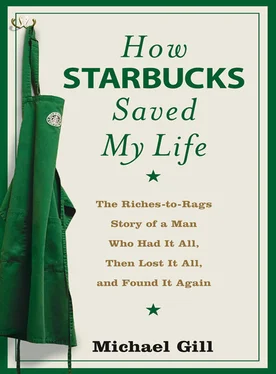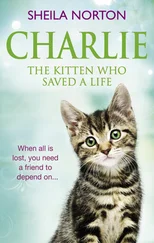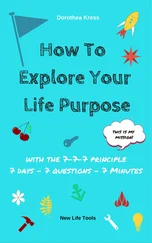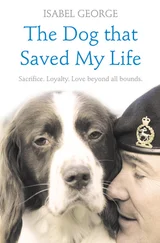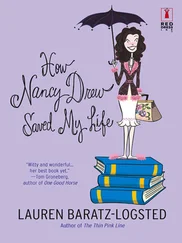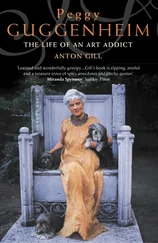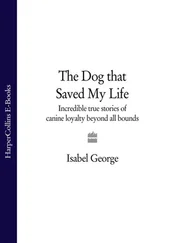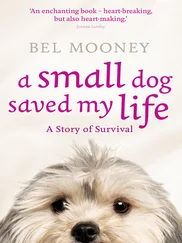“ Why? ”
“I just want to make sure. You said you had a buzzing in your ear?”
“A slight buzzing,” I hastily replied. I never gave Dr. Cohen any reason to suspect my ill health. I never even told him if I was feeling ill. He was a great practitioner of tough love—which meant that he was relentless in finding anything wrong with me.
“ Slight buzzing. Buzzing! ” he said in his usual, exasperated way. He was impatient with my artful dodging. “Get an MRI, and then go see Dr. Lalwani.”
“Dr. Lalwani?” That did not sound encouraging.
“Michael, you are a snob,” Dr. Cohen told me, “and that could kill you someday. Dr. Lalwani is a top ear doctor. He got his doctorate at Stanford. That make you happy?”
After a lifetime of treating me, Dr. Cohen knew me too well.
I had the MRI. Dr. Cohen had told me that it would only take a “few minutes.”
I lay there for at least half an hour. And I also did not like the fact that I heard other doctors come in and out of the room.
“What’s going on?”
“Nothing,” the young orderly told me. “We will send the MRI up to Dr. Lalwani. He wants to see you.”
I was angry. Angry with Dr. Cohen for insisting on this stupid MRI. I had been healthy all my life. And I was not about to stop now. I could not afford any ill health.
Dr. Lalwani kept me waiting for most of the afternoon. I saw people go in and out of his office. Finally, Dr. Lalwani appeared, smiling from ear to ear. Was that a hopeful sign? Lalwani gestured me into his office. It was small and cramped and piled with papers. Not reassuring. I would have preferred a large corner office, with a comfortable couch. He was obviously not doing that well in his profession.
“Mr. Gill,” he said.
“Michael,” I told him, trying to be kind.
But he was insistent, smiling harder. “Mr. Gill, I have some bad news for you … but then you knew something must be wrong … am I correct?”
I knew something must be wrong? Was he crazy? I thought everything was all right.
“What are you saying?” I could barely contain my anxiety and my rage at his calm demeanor.
“You have a rare condition. Fortunately, it is in an area that is a specialty of mine.”
“What is it?” I almost shouted, but Dr. Lalwani was not to be rushed.
“Something very, very rare.” He smiled again. “Only one in ten million Americans.”
I waited, filled with anger, but also with an animal sense I had to let the good doctor do it his way. I was already scared enough to yield to his academic style.
“You have what is called an acoustic neuroma. My specialty. But very rare. It is a small tumor on the base of your brain … that affects your hearing.”
For a second I could not see or hear anything. It was as though I had been given a blow directly to my head and heart. I think I might have stopped breathing.
Dr. Lalwani, sensing my extreme distress, hurried on.
“This condition is not fatal,” he said. “I can operate. But I must tell you the operation is very serious.”
I recovered sight and sound just in time to hear those ominous words. “Serious” coming from a surgeon was not something I wanted to hear.
“What do you mean?”
“We bore into the skull, and it is an operation on the brain. Literally, I am a brain surgeon … this is brain surgery.”
He was so confident in himself. I hated him for being so willing to operate.
“Your hearing may not be restored. The tumor is causing the buzzing. It will take one or two weeks before you can leave the hospital,” he said.
“Before I can leave the hospital,” I repeated numbly.
“And several months before you will be fully recovered. But the rate of recovery is very high. Fatalities are very rare. Only a few actually die.”
A few … die? Was he mad?
“When do I have to have the operation?” I stammered out. My mouth was dry.
“I would do it right away … but you might wish to wait several months, come back, we will have another MRI, see if the tumor has grown. You might have a very slow-growing tumor.”
Finally, a ray of hope. Like everyone, I hated the idea of hospitals. Friends had died in hospitals. Not to mention I was broke. Any postponement was a gift from God.
I got up quickly, shook his hand, left his office, and immediately called Dr. Cohen.
He was not reassuring.
“Sounds like you should have the operation,” he told me.
“Yes,” I said, faking agreement, “but I will wait a few months for another MRI.”
I was buying time.
Giving up health insurance for myself was bad enough, but not to be able to afford health insurance for my children was much worse. I wondered if the tumor was in some karmic way a punishment for my behavior.
Now, sitting across from Crystal, I read the Starbucks brochure about the insurance benefits with particular interest They seemed extensive, and even covered dental and hearing—something I had never been given as a senior executive at JWT.
I looked up at Crystal, hopeful, “Does this cover children?”
“How many kids do you have?”
“Five,” I said, thinking about how I was used to saying “four.” Five.
Crystal laughed. Then she smiled, almost kindly.
“You’ve been busy,” she said.
“Yes.”
I did not want to say any more; it was way too complicated to explain in a job interview.
“Well,” she went on, still with a positive tone, “your five kids can all be covered for just one small added deduction.”
What a relief. My youngest child, Jonathan, was the main reason I was so eager for work. It wasn’t his fault. It was all my fault.
I had met Susan, Jonathan’s mother, at the gym, where I had started to go shortly after I was fired. I needed a reason to get out of the house every day, and exercise became my new reason for getting up and out.
One morning I had been lying down on a mat resting. I was in a room that happened to be empty at the moment and was occasionally used for yoga classes. Susan had come in. It was clear she did not notice me and thought the room was empty. She was crying as she moved over to lean against the wall.
“Are you okay?” I asked. I was uncomfortable around emotional people.
She was startled, but did not stop crying.
“My brother is dying of cancer … just days to live …”
“That’s tough,” I said, sitting up on my blue mat, getting ready to leave.
“And just last year I lost my father to lung cancer.”
“Tough,” I repeated, standing up. I should have continued my progress out of the door, but I did not feel I could just leave her with her sorrow.
I moved closer to her.
“Don’t worry,” I said, not knowing where these words came from. “You will soon be happier than you ever have been before.”
She looked up at me. Susan was small, barely more than five feet, with lots of dark hair and brown eyes. I am over six feet tall, with little hair and blue eyes. We were a study in contrasts, an odd couple for sure.
Susan rubbed her tears away, but more kept flowing.
“What?” she said, not quite believing that she had heard correctly.
I could not believe what I had said. Where had those crazy words come from?
But I repeated them.
“You will be happier than ever.”
She nodded, as though understanding at some level.
I turned to go.
“I like a man who does yoga,” she said. “It shows flexibility.”
Susan and I started our relationship on totally false assumptions. She had taken me for someone interested in yoga. I had no interest in yoga. I did not like to stretch: It made me feel even more inflexible . I was rigid about many things. Physically. Mentally. Emotionally. I liked old songs, old ways. Until now, my past had worked well for me. Susan had no idea about what I was really like. Meeting me in the yoga room, she thought I was a flexible, perceptive person who could understand the deeper, more positive profundities of life. Like I was some wise guru.
Читать дальше
